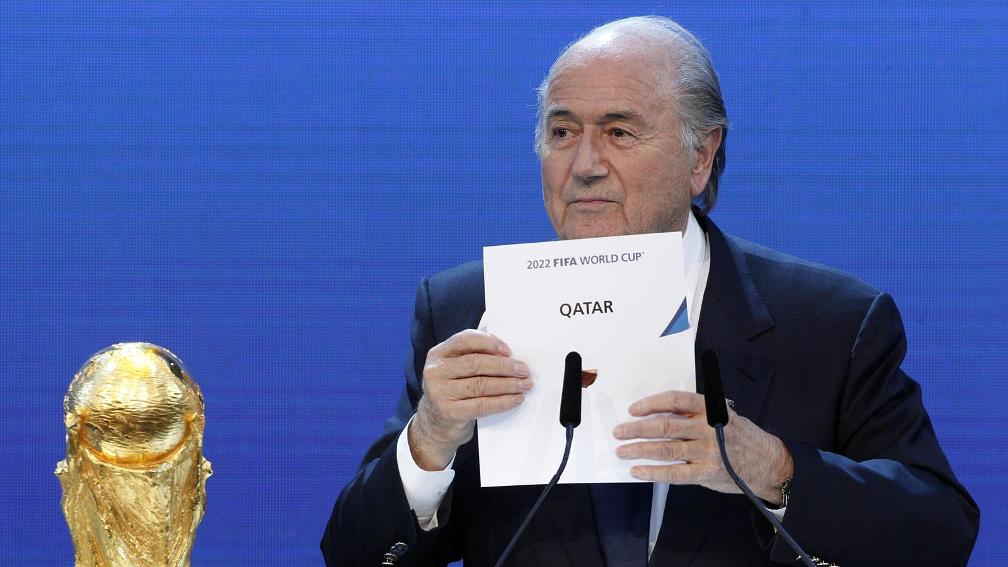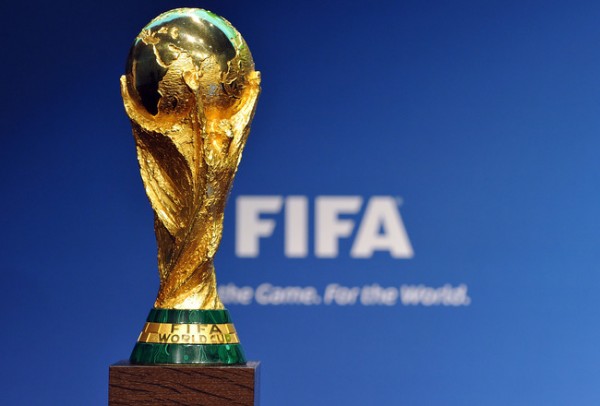Football‘s world governing body FIFA has cleared Qatar and Russia of corruption and ruled out a re-vote for the 2018 and 2022 World Cup tournaments despite widespread allegations of wrongdoing.
An exhaustive report by the FIFA ethics committee admitted that even though there had been a series of worrying episodes in the bidding for the 2022 tournament, as well as the 2018 World Cup in Russia, there was not enough evidence to justify reopening the process.
“The report identified certain occurrences that were suited to impair the integrity of the 2018/2022 World Cups bidding process,” said the 42-page report released by Hans Joachim Eckert, the chairman of the committee’s adjudicatory chamber.
“.. the occurrences at issue were, in the chairman’s assessment, only of very limited scope.
“In particular, the effects of these occurrences on the bidding process as a whole were far from reaching any threshold that would require returning to the bidding process, let alone reopening it.
“The assessment of the 2018/2022 FIFA World Cups bidding process is therefore closed for the FIFA ethics committee.”
Qatar welcomed the decision saying they had been “confident” they won the bid with a “clean” record ahead of rivals Australia, Japan, South Korea and the United States.
The report also said that in Australia’s bid for 2022 “there are certain indications of potentially problematic conduct of specific individuals in the light of relevant FIFA Ethics rules.”
Hassan al-Thawadi, secretary-general of the Qatar 2022 organising committee, told AFP: “We were confident that any impartial investigation was to show that our record was clean and contains no irregularities.”
– England bid criticised –
The report also found no evidence of misconduct related to the Russian bid for 2018, but added that not all records had been available to the investigation.
The computers used at the time by the Russia Bid Committee had been leased and then returned to their owner and destroyed, meaning access to emails was not available.
The head of Russia’s organising committee, Alexei Sorokin, said they had cooperated fully with the investigation but that some information had been “forgotten”.
“We handed over to the investigation everything that we could. You have to understand that four years had passed and some information is simply forgotten.”
Sports Minister Vitaly Mutko, who is a member of FIFA’s powerful Executive Committee, told TASS news agency: “I was sure that this is what would happen — our bidding campaign was absolutely honest.”
However, the English Football Association (FA) was accused of “violating bidding rules” in its attempt to win the right to stage the 2018 event which also included joint bids from Belgium/Netherlands and Portugal/Spain.
It alleges that in an attempt to “curry favour” with Trinidad and Tobago official Jack Warner, who was believed to control a block of FIFA executive votes, the England bid team contravened bidding rules.
England 2018 is accused of helping “a person of interest to (Warner) find a part-time job in the UK” and sponsoring a gala dinner for the Caribbean FootballUnion at a cost of $55,000 (44,100 euros).
The FA rejected the criticisms, in a statement on their website. “We do not accept any criticism regarding the integrity of England’s bid or any of the individuals involved.”
– Series of reforms –
The FIFA report recommended a series of reforms to future bidding processes in an effort to protect the integrity of the sport’s most lucrative showpiece event.
These include four-year limits on FIFA executive committee posts, the FIFA Congress, rather than the executive committee, to decide on future venues, a more transparent rotation system and a ban on committee members visiting bidding nations.
In a break with FIFA tradition, the 2018 and 2022 tournaments were awarded at the same time, in 2010, leading to claims of horsetrading in the bidding process.
As concerns grew, FIFA appointed Michael Garcia, a former US federal prosecutor, to head up the inquiry into the 2018 and 2022 tournaments.
His 350-page report was handed to FIFA on September 5.
It summed up a year-long investigation that involved interviewing more than 75 witnesses and compiling a dossier with more than 200,000 pages and audio interviews.
The main controversy revolved around Qatar and how the gas-rich emirate was awarded the 2022 competition which was initially to be played in the summer when temperatures reach the upper-40s Celsius.
It also considered claims by international labour organisations that working conditions for migrant workers employed in the construction of the stadia were less than satisfactory.
Despite Qatar escaping a re-vote, Thursday’s ethics committee report still raised serious concerns over its campaign.
The report again probed the role of Qatari Mohammed bin Hammam, a former member of the FIFA executive committee who was banned from all footballactivity in 2012.
In June, Britain’s Sunday Times alleged that bin Hammam paid more than $5 million to officials around the world before the 2010 vote to drum up support for the tiny Gulf state.
However, the report states that payments were designed to bolster his bid for the FIFA presidency in 2011 rather than to manipulate Qatar’s 2022 World Cup hopes.
Qatar’s decision to sponsor the 2010 Confederation of African Football (CAF) Congress in Angola to the tune of $1.8 million was also brought into question. – Agence France-Presse


































